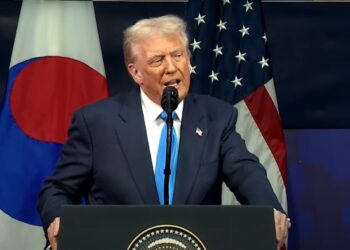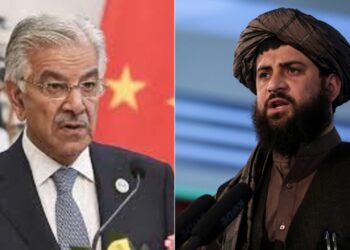The United States has launched precision
airstrikes on three Iranian nuclear sites
Fordo, Natanz, and Isfahan
Web Desk
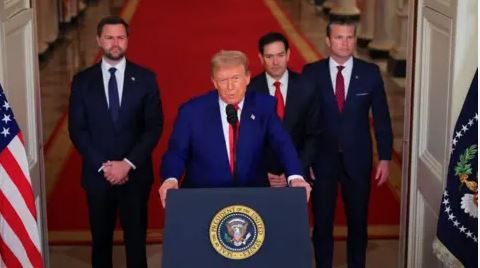
Tehran/Washington: President Donald Trump announced Saturday that the United States has launched precision airstrikes on three Iranian nuclear sites—Fordo, Natanz, and Isfahan—marking a significant escalation in the ongoing Iran-Israel conflict.
Calling it a “spectacular military success,” President Trump stated during a national address from the White House that the U.S. military deployed a full payload of bombs to destroy Iran’s nuclear enrichment infrastructure. “Our objective was the total elimination of Iran’s nuclear threat,” said the president.
Trump made the initial announcement via Truth Social, stating that all American aircraft returned safely. “This is an HISTORIC MOMENT FOR THE UNITED STATES OF AMERICA, ISRAEL, AND THE WORLD,” he posted. He warned Iran to pursue peace or face more devastating attacks.
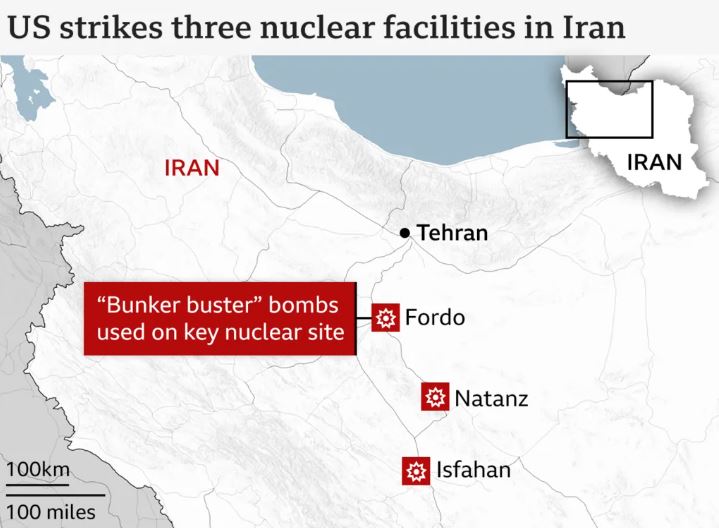
Operation Midnight Hammer: Bunker-Buster Assault
According to Gen. Dan Caine, Chairman of the Joint Chiefs of Staff, Operation Midnight Hammer involved 125 aircraft, including seven B-2 stealth bombers. The U.S. launched 14 GBU-57 bunker-buster bombs targeting underground facilities, particularly Fordo. Cruise missiles were also launched from a U.S. submarine.
Caine noted that Iran’s air defenses failed to detect or intercept the U.S. aircraft, allowing the operation to proceed unchallenged. “All targets were hit between 18:40 and 19:05 ET,” he said, adding that the strikes caused “extremely severe damage.”
Satellite imagery confirmed the extent of destruction at Fordo, showing fresh craters and debris. Stu Ray from McKenzie Intelligence Services told BBC Verify that key tunnel entrances appeared sealed.
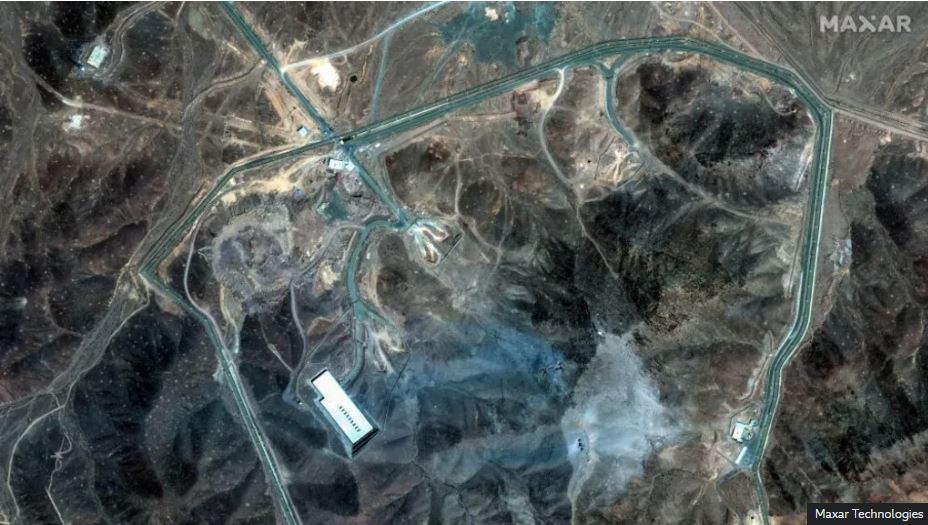
Iran Confirms Strikes, Denies Major Losses
Iranian officials acknowledged that the nuclear sites were targeted but claimed that materials were evacuated in advance. The Atomic Energy Organization of Iran condemned the attack as a “barbaric violation of international law.”
Radiation monitoring by Saudi Arabia and the International Atomic Energy Agency (IAEA) showed no abnormal levels post-strike.
Iran Retaliates with Missile Strikes
Hours after the U.S. bombing, Iran launched missile barrages at Tel Aviv and Haifa, injuring at least 86 people. Iranian Foreign Minister Abbas Araqchi warned of further retaliation and accused Trump of reigniting Middle East conflict.
An advisor to Iran’s Supreme Leader declared that U.S. military bases in the region, and countries hosting them, would now be treated as legitimate targets.
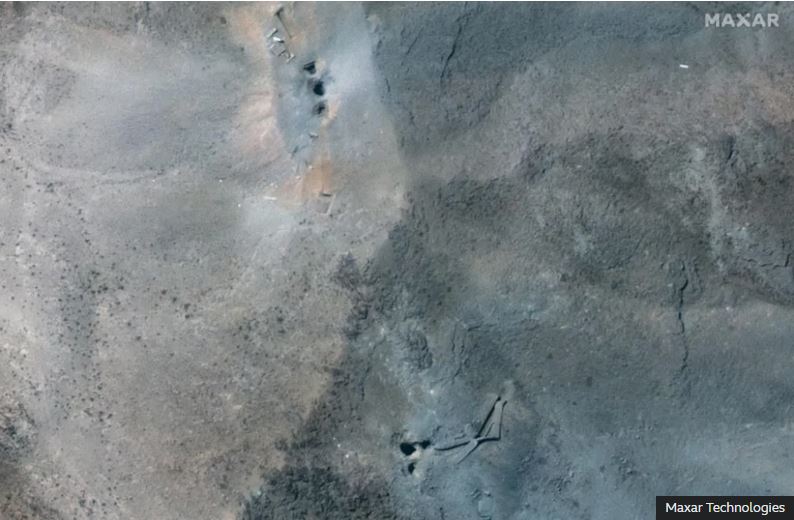
Global and Political Reactions
In the U.S., reactions were divided. Republican leaders largely backed the move, with Senator Ted Cruz praising the operation. However, dissenting voices, including Representative Marjorie Taylor Greene and Democrat Hakeem Jeffries, criticized the president for bypassing Congress.
Independent Senator Bernie Sanders labeled the strikes “grossly unconstitutional,” arguing Trump lacked congressional authority for a new war.
Conclusion
President Trump warned that more strikes could follow if Iran does not pursue peace. “There are many targets left,” he said, reinforcing that the U.S. does not seek regime change but will protect global security.

